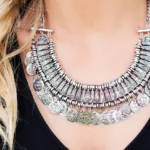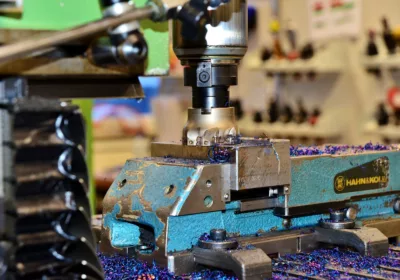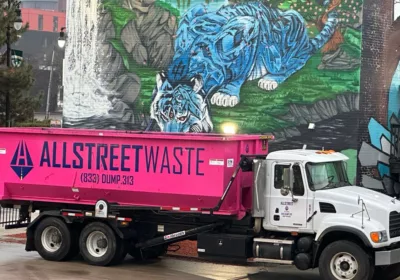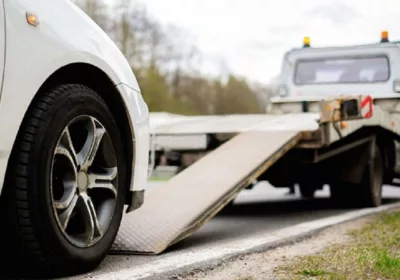
Buying a New Car: 8 Things to Consider
Did you know that people lose over $5 billion to fraud every year?
Fraud comes in many forms, from identity fraud, to fake Chinese-made products, to cars. Even when buying a new car, you need to be on the lookout for scams. When you’re about to invest thousands of dollars in a single asset, it only takes one small mistake to lose some or all of it.
As with all things, it just takes a bit of caution to protect yourself from all the worst outcomes. Buying a car, like any other purchase, can benefit from taking a step back to identify common warning signs.
Keep reading as we discuss eight things to consider when you buy a new vehicle.
1. Should You Be Buying a New Car, or a Used One?
The first question you need to ask yourself is whether a new car is worth it in the first place. A used car will be much more affordable and can still get you more or all of what you want.
You might not have the assurance that it’s fresh out of the factory or comes with a warranty. But depending on the vehicle model, you could be saving thousands of dollars for something that will still last years to come.
If you can deal with some pre-existing issues and everyday wear and tear, go for a used vehicle instead.
2. Petrol, Diesel, Electric, or Hybrid?
Each of the above four options will be best depending on what your needs are. Let’s cover the biggest reasons you might want each of the above:
- Petrol: you prefer performance, drive sporadically, and/or want the widest selection of cars
- Diesel: you drive a lot (every day), prefer better gas prices, and/or want to carry bigger loads
- Electric: you are eco-friendly, make only short trips, and/or want the cheapest fueling option
- Hybrid: you are not yet ready to commit completely to an electric vehicle, but want some of the benefits of an electric and gas
3. How Do You Plan to Finance Your Car?
Cars give you plenty of flexible options for how to handle payment. You can pay in a straight payment with cash, or get a loan. Straight payments will be cheaper in the long run, but most people cannot scrounge up several thousand at once.
Loans offer far more financing options, but it can be difficult to get a good one when you have bad credit. Do be sure to prioritize loans that:
- Do not have a high interest rate
- Allow you to pay off the loan sooner (meaning the car costs less overall)
- Allow you to refinance or adjust the loan in response to economic strain
- Do not do a hard pull on your credit score
4. How Much Will Your Monthly/Yearly Operational Costs Be?
Paying the monthly payments for a new vehicle is only one part of the equation. You should also consider how much it costs to run the car on a daily, monthly, or yearly basis.
Calculate the MPG and determine how much you drive on average per month. Do some research on how much it costs to fix issues with your vehicle. Be aware of any manufacturing issues unique to your vehicle in particular, such as a transmission that goes bad after only a few years.
5. How Long Will You Shop Around Before You Settle on One Car?
It’s important to check all your options. Do test drives, and explore alternatives. But don’t take too long!
You have to recognize that a good deal won’t wait long. Be ready to shop around for a few months, but know when to end your search. The market is sporadic right now, so you may have to make some sacrifices for a certain car.
6. Do You Want to Haggle?
Haggling can allow you to get the price down, especially in places like a dealership. Vehicle sellers want to clear out their inventory from time to time. If you offer an enticing offer, you could knock a few thousand off the price.
However, know how to haggle. There is an art to it, and you won’t get it right the first time. Do some research about the best method for haggling, and employ those principles as you go about the shopping process.
7. What Sort of Warranty Do You Want?
Most cars come with a 3-year warranty, but this only covers manufacturing issues. If your car gets into a crash or suffers superficial damage, the warranty won’t cover it.
Read more here about an extended warranty. An extended warranty allows you to get coverage on more things beyond manufacturing problems. Some may be comprehensive and cover any or all damage, while others may cover specific things that you need.
8. Do You Want a Big or Small Car?
This is a small question, but it’s perhaps one of the most important ones. The size of your car could make it a valuable asset, or a pain and a financial burden.
A small car will get better mileage, will be easier to drive, and will fit better into small parking spaces. However, you won’t be able to drive around large groups of people. A smaller vehicle may also not be fit for outdoor trips or moving houses.
A large car may guzzle gas and be hard to park. But you’ll be able to bring all your friends anywhere you like, often to outdoor locations. Moving your house or carrying a lot of cargo will be easier and cheaper than hiring a truck.
Buy a New Car Today
Buying a new car is better than getting a used one since there are no miles, no preexisting conditions, and full warranties. However, you should carefully consider what kind of vehicle you want and how you’ll finance it. Paying now for warranties and protections may save you a lot of money down the line when it breaks or worse.
Follow our blog for more auto-related tips.















